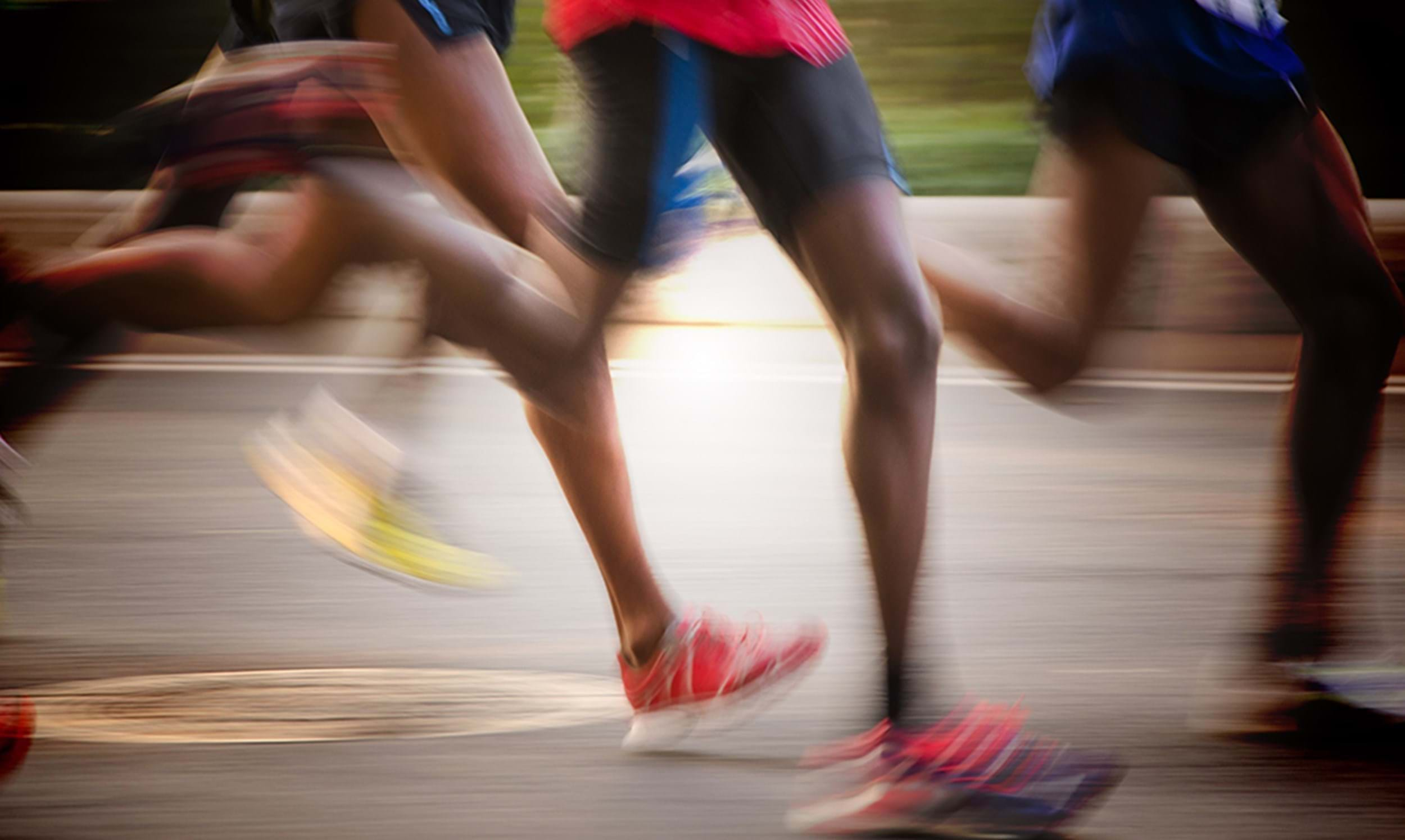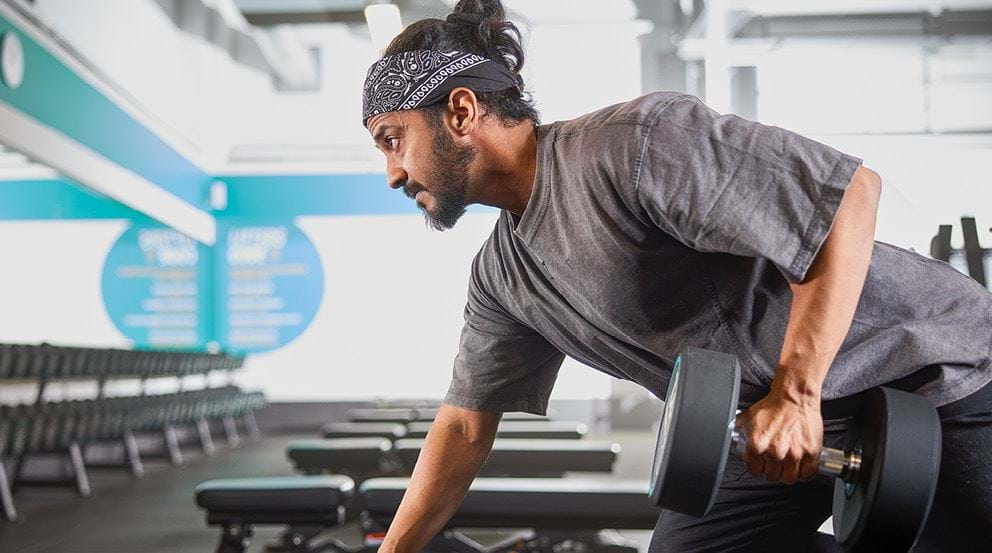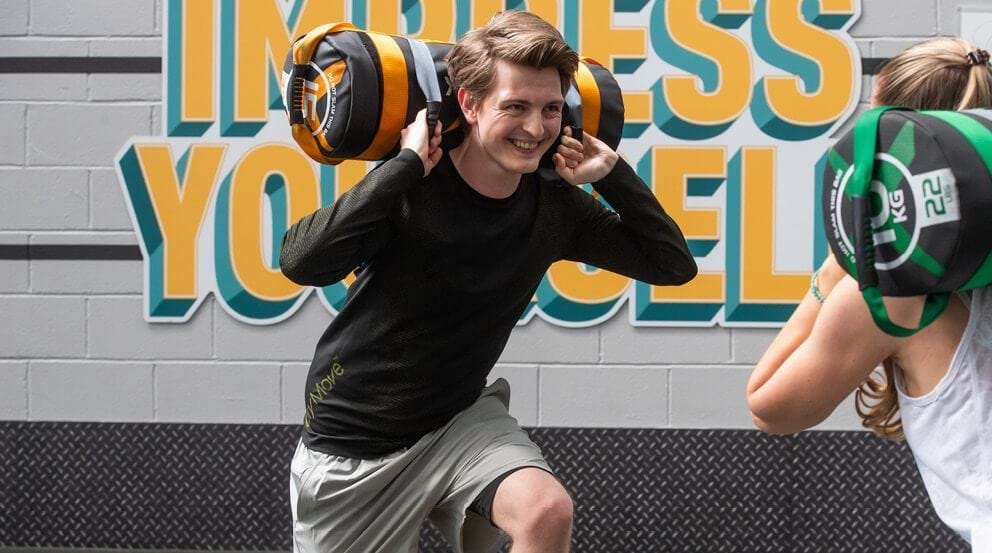How to Prepare For Your Race, Whether You're Running a 5k or a Marathon

How To Prepare For Your Parkrun | How To Prepare For Your 5k Race | How To Prepare For Your 10k Race | How To Prepare For Your Half Marathon | How To Prepare For Your Full Marathon
Preparing for a race, whether it's your first park run or your 10th marathon, can always be a bit nerve wracking. Each race type has its unique preparation requirements to ensure you're fit, healthy and raring to go come race day.
As you might have guessed, the length of your race significantly influences your preparation routine. A local parkrun (5k) for example, won't require as much intense training in comparison to a full marathon (42k).
With that said, the fundamentals of race preparation are quite similar, as all require endurance training and consistent physical conditioning.
The following tips on race preparation cover runners of all ability levels, for all races - from parkruns and 5ks to half and full marathons. Taking it to the next level? Check out our ultramarathon training guide here.
Let's take a look at how to prepare for your race in the days leading up to it!
How To Prepare For Your Parkrun
parkruns are usually free, 5-kilometre (3.1 miles) long races, held in local parks, and packed with runners of all ages and abilities. They're casual, fun, and a great opportunity to soak in the community spirit of running.
If you're new to running or a jogging beginner, a parkrun is a fantastic race to begin with.
Here's some tips on how to prepare for your parkrun on the days leading up to race day:
Understand the parkrun format: parkruns courses are usually well-marked and volunteers help guide participants along the route. Familiarise yourself with the location and course map beforehand so you know what to expect on race day.
Set some personal goals: Whether you're aiming for a personal best time or simply finishing strong, set some realistic goals based on your current fitness level and experience. parkruns are generally very relaxed and social, so don't put too much pressure on yourself if it's your first time.
Dress appropriately: parkruns allow you to wear whatever you want! We'd recommend opting for some comfortable running attire like breathable shorts or leggings, a lightweight shirt and some decent running shoes. Keep an eye on the weather, too!
Hydrate and fuel up: Most parkruns start in the morning, so try to eat a 200-300 calorie meal around one to two hours before your run. Aim for easily digestible foods like bananas or toast with peanut butter. There's no need for intense carb-loading as parkruns are relatively short.
Pace yourself: During the parkrun, find a comfortable pace that allows you to maintain a steady effort. Don't start too fast and risk burning out early. Instead, focus on running at a sustainable pace and gradually pick up the pace if you're feeling strong towards the end.
You can take a look at our 5k running training tips for a more detailed breakdown of running your first parkrun.
How to Prepare for Your 5k Race
5k races are usually the same distance as parkruns, so the preparation stages are quite similar. The above guide will help you prepare for a standard 5k run.
That said, the only thing you may need to take into account when preparing for a 5k is the running terrain. For example, running on hard tarmac requires a slightly different approach to running on softer trails or tracks.
Here's how to adapt your preparation based on different terrains:
Road races: Focus on building endurance and speed with regular road running. Pay more attention to your running form and wear cushioned shoes for impact absorption.
Trail runs: Incorporate trail running to adapt to uneven terrain and elevation changes. Strengthen agility and invest in trail shoes with good grip.
Sandy races: For races such as beach runs or desert trails, focus on building lower body strength and stability. Try to practice barefoot running or training in sand to acclimatise your body to the softer surface and improve balance and proprioception (your body's ability to sense movement, action, and location). If where you're running is hot, drink plenty of water beforehand and carry some with you if you can.
If your 5k is on a more challenging terrain or you're interested in trail running, take a look at how to train for these types of events and challenges.
How to Prepare For Your 10K Race
Unlike parkruns, 10K races cover a distance of 10 kilometres (approximately 6.2 miles).
10k races are a great starting place for runners who are looking to get more serious. Maybe you're up for a new challenge after completing a few 5k runs, or maybe you're thinking about early training for a half marathon.
Whatever your reason, preparing for a 10k requires a slightly different approach to parkruns and standard 5ks.
Understand the race route: Familiarise yourself with the race route and any elevation changes or terrain variations. Knowing the course layout can help you plan your pacing and mental approach.
Set personal goals: Whether it's aiming for a new personal best time, completing your first 10K, or simply enjoying the experience, set specific and achievable goals for yourself.
Wear comfortable running gear: Again, choose your race day attire wisely, taking into account the weather conditions and any terrain challenges. Also, make sure your running shoes provide adequate support and cushioning for the longer distance.
Hydration and nutrition: Hydration and fuelling become more important during a 10K race compared to shorter distances. Stay hydrated in the days leading up to the race and drink plenty of water during the event to maintain fluid balance. Consume a balanced meal or snack 1-2 hours before the race, focusing on easily digestible carbohydrates and a moderate amount of protein.
Want a better training plan for your next 10k? Take a look at our 8 - 10 week 10k running programme.
How to Prepare For Your Half Marathon
Now we're getting to the big stuff. This is where you really do need good running shoes.
Half marathons, whether it's your first attempt or you have a few under your belt, always require a longer preparation plan. They cover a distance of 13.1 miles (21.1 kilometres), making it a significant step up from shorter races like 5Ks and 10Ks
However, with the right half marathon training plan, anyone can run a half marathon - even total beginners. If you're completely new to running, just be sure to allow a minimum of 16 weeks to train, as you can't dive into this in the same way as a parkrun or 5k run.
Let's look at how to prepare in the run up to your half marathon day.
Appreciate the distance: You've likely been training for a fair few months, so you should be aware of the work you're about to put in! Resist the urge to set off too fast and opt for running the first half of the race slower than the second. This will help you finish stronger and make the last few miles easier. You might also want to take some running gels with you to help maintain your stamina levels.
Arrive early: Make sure you arrive at the start line or your start wave early. This gives you enough time to have a toilet break, store any belongings you've brought along and mentally prepare for the race. You don't want to be late and stressed before your half marathon has even begun!
Understand the race day logistics: Familiarise yourself with the race day logistics, including the course route, start time, parking options, and packet pickup procedures. You might want to have a race day checklist to ensure you have all the necessary gear and supplies.
Invest in a good pair of running shoes: This is where buying proper running shoes is essential. You might be able to get away with cheaper trainers for park, 5k and 10k runs, but half marathons ask a lot more of your feet and physical ability.
Post-race recovery: After completing your half marathon, focus on proper recovery to aid in muscle repair and replenish energy stores. Hydrate well, refuel within an hour after finishing if you can, stick to food high in carbohydrates and protein, like bananas and raisins. For bigger meals go for something simple like a chick salad or a chicken and avocado sandwich. Remember to do some light stretching or foam rolling to alleviate muscle soreness!
How to Prepare For Your Marathon
Here it is, the big one. Training for a marathon requires a tonne of time and dedication. This is a gruelling challenge for many, but can be one of the most empowering and rewarding experiences you ever do.
Preparing properly for your marathon is essential for several reasons. Yes, finishing with a good time is a great goal to aim for, but your health and safety need to come first. This is why it's essential to be following a solid running and strength training programme in the months leading up to it.
The below guide will help you prepare appropriately to ensure you're able to enjoy and finish your marathon.
The night before your marathon
Stick to your training plan: You've likely been following a detailed training plan for months, and it's important you don't sway from that. In the days leading up to your marathon, focus on tapering your training volume and intensity to allow your body to recover and peak on race day. Stick to your scheduled runs and workouts as outlined in your training plan, but reduce the duration and intensity as you approach race day.
Carb-load: Here's where we can carb-load. You'll need to enjoy a carb-rich dinner the night before your marathon to fuel your glycogen stores. Choose easily digestible foods such as pasta, rice, bread, and potatoes, and avoid heavy or unfamiliar foods that could cause discomfort. Remember, your marathon training diet plays a huge role in your performance on race day.
Prepare your race gear: Lay out your race outfit, including comfortable clothing, running shoes, socks, and any accessories you'll need such as a GPS watch, race bib, and hydration belt or pack. Make sure your running gear is breathable, too!
Hydrate: Drink plenty of fluids throughout the day, focusing on water and electrolyte-rich beverages to stay hydrated. Avoid excessive caffeine and alcohol consumption, which can contribute to dehydration.
Relax and try to rest: Take time to relax and unwind before bed to promote quality sleep. Avoid strenuous activities, excessive screen time, and stressful situations that could interfere with your rest.
The morning of your marathon
Eat a balanced breakfast: Enjoy a light, carbohydrate-rich breakfast a few hours before the race to top up your energy stores. Opt for familiar foods such as oatmeal, bananas, toast, or energy bars that won't upset your stomach.
Hydrate: Drink water or a sports drink to hydrate before the race, but avoid overconsumption to prevent needing frequent restroom breaks during the race.
Warm up: Perform a dynamic warm-up routine to prepare your muscles and joints for the demands of the race. Incorporate dynamic stretches, light jogging, and strides to gradually increase your heart rate and loosen up your body.
After you complete your marathon
Congrats! Here's what you'll need to do after you complete your marathon.
Rehydrate and refuel: Drink plenty of water or a sports drink to replenish fluids lost during the race, and try to eat a balanced post-race meal or snack containing carbohydrates and protein to help with your muscle recovery.
Stretch and cool down: Perform gentle stretching exercises to alleviate muscle tightness and promote recovery. Focus on major muscle groups such as the legs, hips, back, and shoulders.
Having a proper training, maintenance and recovery programme is absolutely crucial for you to have a successful marathon and reduce the risk of injury. If you're thinking about your next marathon and want a better time, take a look at our 16-20 week marathon training plan.
Final Tips to Prepare For Your Race
Remember, whether it's a parkrun or a marathon - be in the moment.
Soak in your surroundings and enjoy being a part of something of this scale. Try to remain focused and be mindful to find a rhythm as quickly as possible and stick to it throughout. We know race day can be a little overwhelming, but try to take things one kilometre at a time and enjoy every minute of it!
Hopefully with these few tips, all those months of hard work will pay off and you'll be prepared in every way for the upcoming race. Good luck and have fun!
Get race-ready with PureGym - find your nearest gym and become a member today.


